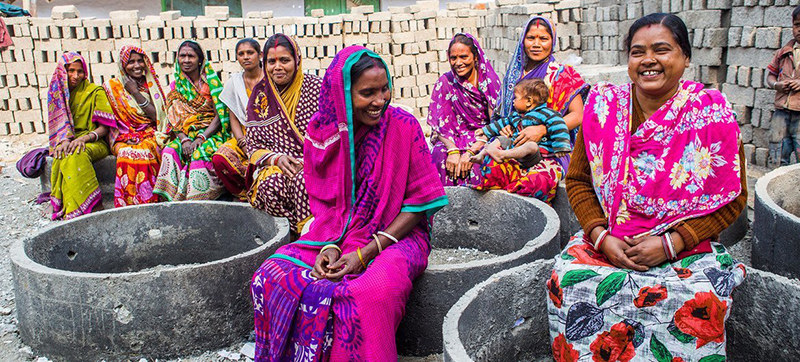 Asia Pacific
Asia Pacific
‘Build forward fairer’ report, urges new social contract for Asia and the Pacific
New York: The Asia and Pacific region’s economic recovery from COVID and other global shocks, must be anchored in an inclusive “new social contract”, to protect the vulnerable in the years ahead, according to a new Economic and Social Survey of the region, published on Tuesday by the UN Economic and Social Commission for Asia and the Pacific (ESCAP).
In addition to the pandemic, the report shows that regional economies face “several downside risks”, ESCAP said in a press release, related to the faltering global supply chain, “rising inflationary pressures, prospects of increases in interest rates, shrinking fiscal space”, and the emerging global economic fallout from Russia’s continuing invasion of Ukraine.
Economic growth in developing countries within the vast region, is projected to fall to 4.5 per cent in 2022 and five per cent during 2023, compared with an estimated growth rate of 7.1 per cent in 2021.
$2 trillion loss
The cumulative output loss due to COVID-19 for the region’s developing economies between 2020 and now, is estimated to be nearly $2 trillion.
The survey cautions against cuts in public spending on healthcare, education and social protection “in order to protect the development gains of past decades and prevent further deepening of inequalities across the region.”
The pandemic has denied more than 820 million informal workers in ESCAP region and over 70 million children in lower income households, adequate access to incomes and schooling, the report notes.
‘Scarring effect’
“This outcome will have scarring effects on the future earning potential of these persons and overall productivity growth”, said ESCAP, while an additional 85 million people in Asia and the Pacific had already been pushed back into extreme poverty in 2021.
“As developing countries in the region move ahead with learning to live with COVID-19, balancing the protection of public health and livelihoods, it is time to lay the foundations for a fairer future of equal opportunities and inclusive outcomes,” said Armida Salsiah Alisjahbana, ESCAP’s Executive Secretary.
Three-point plan of action
The Commission recommends a “three-pronged policy agenda” aimed at shaping an inclusive economy for the region.
First, instead of reductions, developing countries in the region must tilt public spending towards basic universal health coverage, push further towards universal primary and secondary education, and expand social protection coverage.
The commission argues that “smart” fiscal policies can improve the overall efficiency and impact of public spending and revenue collection. At the same time, new sources of revenue should be explored, such as taxing the digital economy, along with shifting the tax burden towards high income households.
Secondly, the 2022 Survey argues that central banks in the region can and should tilt their traditional monetary policy conduct towards promoting inclusive development. While remaining focused on keeping inflation low and stable, central banks can invest part of official reserves in social bonds, explore how a central bank digital currency can enhance financial access, and encourage more innovative financial instruments to secure a social safety net.
Thirdly, governments can also proactively guide, shape and manage the structural economic transformation process, which is increasingly driven by the digital-robotics-AI revolution, for more inclusive outcomes.
This includes supporting the development of labour-intensive technologies, inclusive access to good-quality education, reskilling, strengthening labour negotiation capacities, and social protection floors.
The Economic and Social Survey of Asia and the Pacific is the UN’s oldest and most comprehensive annual socioeconomic study informing policymaking in the region, first published in 1947.
Support Our Journalism
We cannot do without you.. your contribution supports unbiased journalism
IBNS is not driven by any ism- not wokeism, not racism, not skewed secularism, not hyper right-wing or left liberal ideals, nor by any hardline religious beliefs or hyper nationalism. We want to serve you good old objective news, as they are. We do not judge or preach. We let people decide for themselves. We only try to present factual and well-sourced news.







